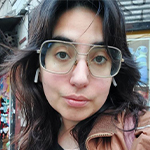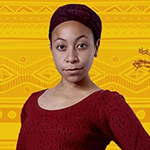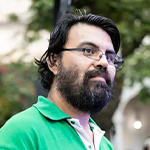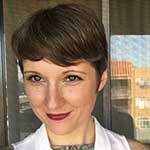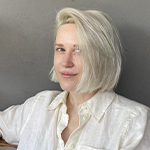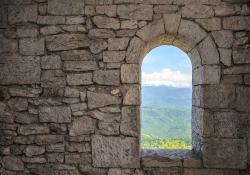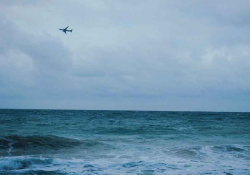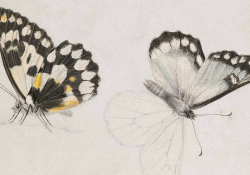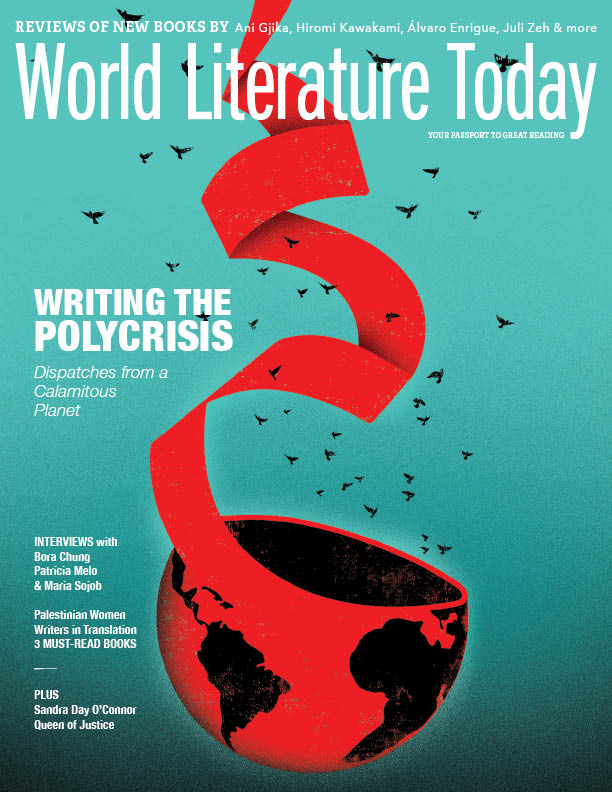3 Ecopoems from the Southern Cone
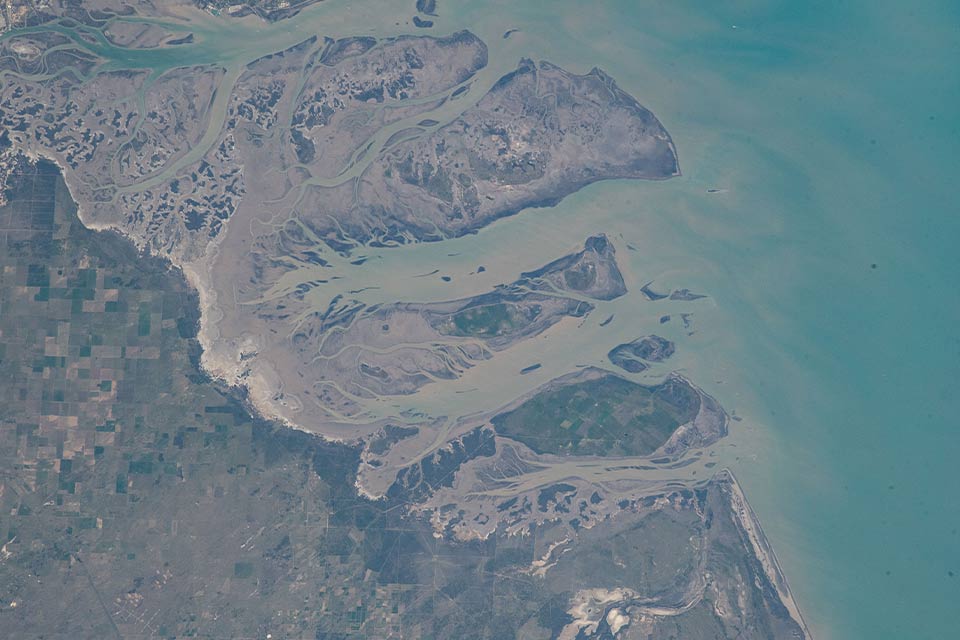
Marking the Wetlands
by Valeria Mussio
translated by Whitney DeVos & Valeria Meiller
“If all this is a bay, why can’t I see it?”
we didn’t think something so big could
be stolen, but yes, it’s possible
in this city we can no longer think
the sea as part of the route.
once she said, “when you say
bahía blanca
I think seafoam breaking
against the shore” and I say, “more like
mud and crabs, more like parrot ravines”
a plain tide that is never ever
altered, a place where freshwater would collide
with the atlantic ocean
a territory sacred to many. that day we drove
to what used to be a public beach
before the plunder, and the deeper
we went the more factories
appeared, they promised
something in exchange but no.
if you saw, the houses in this town
rundown and faded, air
becoming unbreathable, neighbors
slowly dying. this city
it’s cursed, you’re told by women
of the cumelen, huecuvu mapu
the devil’s land, like someone
turning their back
on the sea. from the car I try
to look at what we’re
leaving behind: at this time of day
machines shriek and torches
never go out. very quickly
the sea yields to perspective
and in the city no one notices
all this could
shelter us, in this city
there’s no water, they tell you
only wind.
Translation from the Spanish
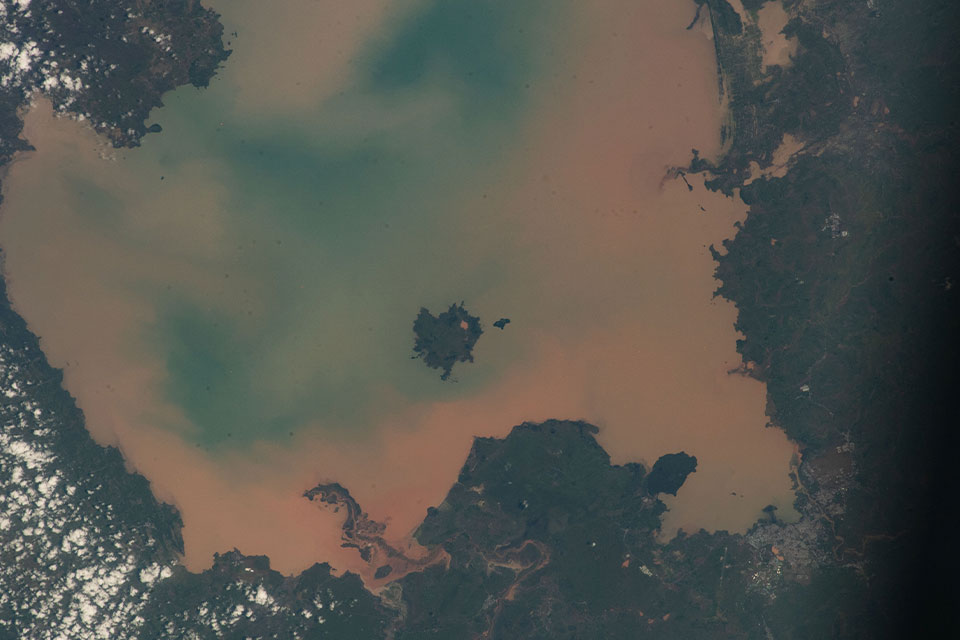
Archaic
by Ana Gayoso
translated by Whitney DeVos
Wild ocean,
a flower detonates archaic.
Rain springs up in la pacha;
song and dance its color.
A life battle-hardened, fierce,
yesterday’s passage
erodes on its own path
unleashing through the breath
couplets, sorrows, a skin.
Yuyito of my grandmothers,
little mortar for singing
The soul’s force burns:
Bow and Arrow
Sea Flower.
Voluptuous release,
incorruptible roots,
more wound and waste,
there’s an ache in her womb.
Water flows alongside this mother,
wise ancestor soon to give birth.
She brings wind and hope
high tide, lunar cycle.
Ayay . . . Ayay ayay . . .
Fallen to the ground,
hand in the earth,
other planes must speak.
Whisper, cabocla, seed.
Hail Jurema, sea green.
Yuyito of my grandmothers,
little mortar for singing
The soul’s force burns:
Bow and Arrow
Sea Flower.
Today mother-lyrics
converge
to unveil the mystery.
Secrets of mountains and water,
natural nourishment.
River, sea, blood,
heart-mind to take care of.
Wind, oxygen, sustenance.
Come on brother, wake up.
Curved rainbow fish,
strokes of lines and spirals.
Sing, mother, sing.
Push your womb to
bring forth,
to create a beautiful dream,
one that walks, jumps, and soars:
meaning,
Vidalitay.
Ayay . . .
Ayay ayay . . .
Translation from the Spanish
Flash Flood
by Mario Castells
translated by Whitney DeVos & Valeria Meiller
to Leko Zamora
Ha mboriahu!
Ñandejára tukumborupa . . .
Teodoro S. Mongelós
A stiff wind cavorts in the storm,
dragging itself, then standing back up.
Seems like a raging dog viper
crashing into the doors of my house, stirring up trouble.
The cold drizzle of blue tulle
shakes an orange tree on the patio.
Who knows, maybe it’ll peel
all the bushes sheer off the land,
it’s already trashed the tree branches in my yard.
& taken out a bunch of tiny birds.
It comes & goes, bad luck & shit. For a moment,
I think it’s gonna let up
& then lighting strikes, flashes.
Thunder’s loud as fuck!
scaring old ladies & kids.
All of a sudden, they’re face down on the ground
& in a flash, again, the deluge.
In the aftermath, when the storm passes
wails, sorrow & darkness
will be all we’ve got left.
They’ll be here soon, the same
vermin politicians.
They’ll show up to tell us
how many of our houses
were taken by the storm.
Translation from the Spanish
Translators’ Note
by Whitney DeVos & Valeria Meiller
The poems here translated into English were originally included in Ruge el bosque. Volúmen I: Ecopoesía del Cono Sur [The forest roars. Volume 1: Ecopoetry from the Southern Cone] (Caleta Olivia, 2023), a multilingual literary anthology featuring poetic expressions from Argentina, Chile, Paraguay, Uruguay, and their borderlands (www.rugeelbosque.com). This selection includes three of the volume’s twenty-four contributors, whose poems index the environmental, linguistic, and cultural diversity of the Southern Cone—and the ongoing threats that racial capitalism, extractivist industry, and state inaction pose to communal well-being. Ana Gayoso, Mario Castells, and Valeria Mussio are writers whose greater bodies of work tackle the disproportionate effects environmental violence has on marginalized communities, often showing us how histories of colonialism, slavery, and dispossession precipitate climate crises in the present.
Valeria Mussio’s “Marking the Wetlands” explores the destruction of Bahía Blanca’s wetlands as the city of Bahía Blanca has become a transshipping and commercial center. In an elegiac manner, her poem reminds readers of the original sacredness of the region, where the same routes once used by colonial explorers today are used to transport oil and gas.
In “Archaic,” Ana Gayoso invokes “la pacha” (Pachamama) alongside her maternal ancestors of African descent to celebrate the forces of creation and renewal. Gayoso braids an intimate relationship to the natural world that defies erasures of Afrodescendent and Indigenous ways of knowing, finding kinship between them.
Finally, Mario Castells’s “Flash Flood” is about a wetlands community affected by flooding and the inadequate responses offered by the government. Castells’s poem emphasizes resilience despite state neglect, exemplified in a defiant, local voice that asserts an alternative to the empty talk of politicians. Published bilingually in Paraguayan Guaraní and self-translated into Spanish, his work foregrounds the grievances of river-dwelling peoples in the Paraná River Delta.
